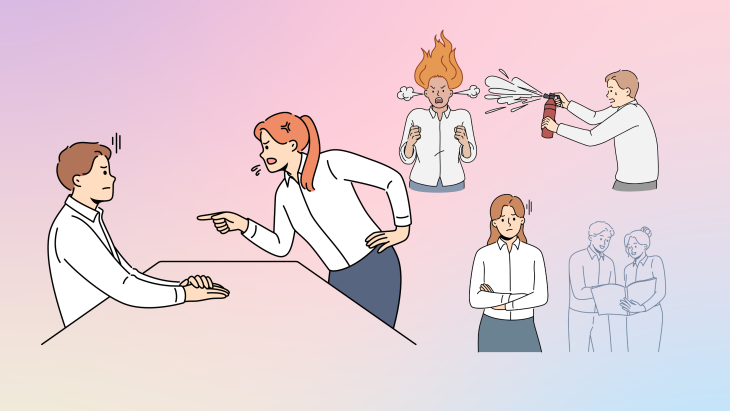Recent Posts
- I broke up with my partner, but now I am having doubts. Did I do it out of the right reasons or was I just being fearful?
- My Quick Temper Pushes People Away. What Do I Do To Manage My Anger?
- How does noise affect my mental health?
- I want to be a better problem solver. What is a step by step approach?
- Escapism. When is it healthy? When is it damaging?
Most Popular
My Quick Temper Pushes People Away. What Do I Do To Manage My Anger?

Our heart rate and breathing increases, our body shakes or our muscles tense up, our stomach knots, and we sweat. They happen when we feel threatened, or when we feel that someone or something has done something bad to us. These are our body’s way of telling us that we are angry.
But we may also slam the brakes, scream at the driver who overtook us in the road or plan revenge on someone who seriously wronged us. These are behaviors that sound the alarms that we are really angry.
Although anger is a normal reaction that can motivate us to find solutions to challenges, some behaviors related to this strong feeling can also become dangerous and harmful, affecting our relationships, our health and even our happiness.
Everyone can feel angry, but what do we do when our anger becomes more frequent and more intense? What do we do when it already interferes with our daily routines?
The good news is there are strategies to manage anger that have been backed up by scientific evidence!
Effective ways to manage anger:
- Know yourself. What makes you angry? What are your triggers?
First of all, we must remind ourselves that anger is not our enemy. It is an emotion that is part of human’s ability to feel, it can warn us of possible danger and tell us that something not right has been done to us. Anger can be adaptive or maladaptive.
Identifying what triggers our anger allows us to check if its purpose is to alert us to a problem that we have to make solutions for.
On the other hand, after you identify signs that you are getting annoyed at something that is trivial, you can check yourself before you even get close to being angry. You can choose to step away from the situation because you already know what you would feel if you stayed in that situation. For example, if you catch yourself easily getting annoyed if your spouse talks about important topics before going to bed, scheduling an earlier time for a deep conversation with them will prevent you from fighting before bed.
- Learn relaxation techniques.
Strategies to ease stress during moments of high emotions are effective especially when you have made them as part of your daily routine.
- Have you ever noticed that your breath comes fast and shallow when you are angry? You can counter that by training yourself to do slow, deep breaths. When you are alone, you can even try closing your eyes and just hear yourself breathing.
- Imagine your happy and peaceful place. Creating a picture of our happy place can replace negative thoughts and give us more control of our imagination.
- Muscles tend to tense up when we are angry. When we focus on one muscle group at a time, make them tense, and then release the pressure, we can gain back control over the muscles and promote relaxation.
- Master your thoughts.
Thoughts are powerful. Have you ever been in a situation where you were angered by one thing, but your day went downhill after that? Most probably, ill thoughts have taken control. It started with the cause of the anger, and it triggered thinking patterns that were leaning towards negativity to come rushing through before we could even stop and think them through. Now we are angrier.
How can we master our thoughts? It takes a lot of practice, practice, and more practice. When you are angry, first, acknowledge that you are feeling angry right now. Then find a related thought that is more positive about the situation.
For example, if you got cut off by another driver, you can say, “Wow. That pisses me off. But, hey, engaging that driver could have caused an accident. I’m better off safe.” It might be difficult at first, but by practicing changing your thought patterns helps you react to anger differently.
In an intimate relationship setting, practicing to listen first before responding allows us to choose more loving words to say, than just letting our initial and sometimes hurtful reactions come out.
Changing your environment also helps you to avoid feeling “trapped” in the situation and it can give you new perspectives. Have some “me time” when you are feeling extremely stressed, and get back to the situation when you feel more relaxed and in a more peaceful frame of mind.
However, if you feel that your anger is really out of your control and it is already hurting the people that matter to you, you can think about counseling. A mental health professional can help you with effective strategies to manage your anger.
Discover your next opportunity in healthcare and mental health by checking premiere job opportunities nationwide!








Comments